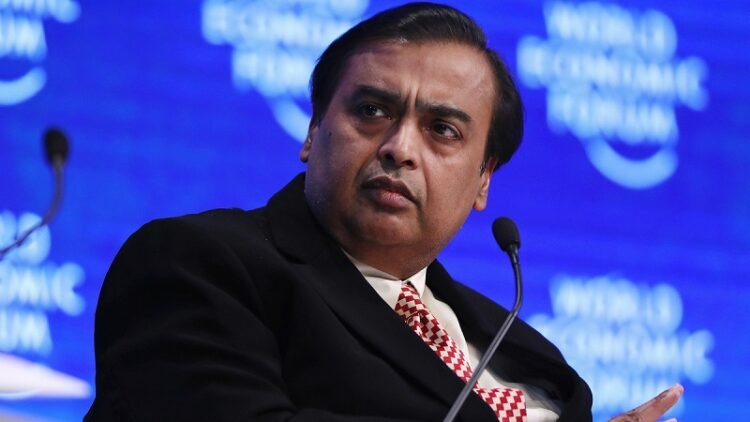Reliance Industries ended FY 2024–25 with a gross debt of ₹3.47 lakh crore and net debt of ₹1.17 lakh crore, despite strong cash flows.
MUMBAI (India CSR): Reliance Industries Limited (RIL), India’s largest private sector conglomerate, has reported substantial borrowings on its balance sheet at the close of FY 2024–25, highlighting the continuing challenge of financing aggressive expansion while maintaining financial stability. According to the company’s Integrated Annual Report 2024–25, RIL’s gross debt stood at a significant Rs. 3,47,530 crore (US$ 40.7 billion) as on March 31, 2025, with net debt at Rs. 1,17,083 crore (US$ 13.7 billion).
Despite robust internal cash flow generation, the group’s leverage remains noteworthy, underscoring the capital-intensive nature of its operations. The company recorded capital expenditure of Rs. 1,31,107 crore during the year, channelled primarily into new Oil-to-Chemicals (O2C) projects, retail store expansion, and augmentation of digital services infrastructure.
In his message to stakeholders, Mukesh D. Ambani, Chairman and Managing Director of Reliance Industries Limited, stated, “Even amidst external volatility, Reliance delivered a year of solid and balanced growth. Our results speak to the strength of our diversified model and our deep-rooted execution discipline.” The remark, part of the Chairman’s address in the Integrated Annual Report 2024–25, reflects the company’s confidence in its diversified portfolio and its consistent ability to navigate challenging global and domestic market conditions while sustaining growth.
Substantial investments were also made in building manufacturing assets in its New Energy business, a strategic pillar aimed at positioning RIL as a leader in green technologies.
Industry analysts point out that the sustained high capex trajectory comes in an environment of elevated global interest rates and volatile capital markets, raising the stakes for debt servicing and refinancing. The report notes that RIL has adopted a multi-currency, multi-instrument financing strategy to achieve an optimal capital structure at competitive costs.
In FY 2024–25, this included securing syndicated term loan facilities of around USD 3 billion to refinance maturing debt obligations, along with approximately USD 1 billion in green-labelled Export Credit Agency (ECA)-supported financing to fund eligible sustainable projects.
The company’s debt profile continues to be underpinned by strong credit ratings, with RIL rated two notches above India’s sovereign rating by S&P (BBB+) and one notch above sovereign by Moody’s (Baa2). Domestic ratings remain at the highest AAA (Stable) from agencies including CRISIL, ICRA, CARE, and India Ratings. This credit strength affords RIL access to competitive borrowing costs and diverse funding sources, even in turbulent market conditions.
However, the reliance on large-scale debt financing has renewed investor focus on the balance between growth ambitions and leverage. The O2C business, once the dominant profit driver, saw an 11.9% drop in EBITDA in FY 2024–25 due to weaker global refining margins and lower petrochemical prices, while standalone profit after tax fell 16.1% year-on-year. With such core earnings pressures, sustaining debt service alongside aggressive expansion will require careful capital allocation and continued cash flow discipline.
RIL’s liquidity management framework, as outlined in the report, prioritises deploying surplus funds into stable-yield instruments insulated from adverse market movements, ensuring immediate access to liquidity. The company maintains that its robust liquidity position, conservative balance sheet, and diversified business model provide resilience against economic headwinds.
Looking ahead, the group has reiterated its commitment to prudent capital allocation within a strong risk management framework. Nonetheless, with a sizeable debt load and a capex programme spanning traditional and emerging sectors, RIL’s ability to strike a balance between deleveraging and fuelling growth will be closely watched by markets.
(India CSR)







